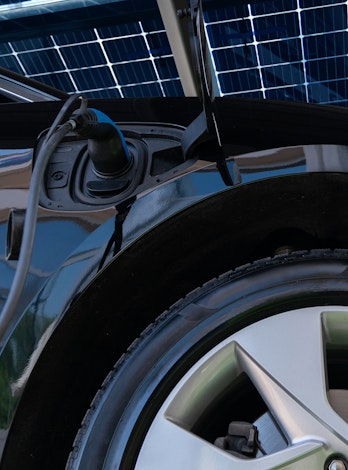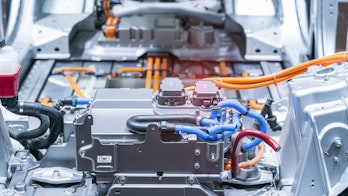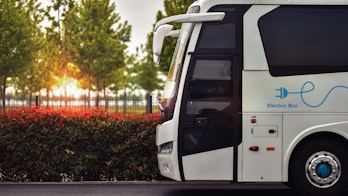Electric Vehicles Initiative
Accelerating the introduction and adoption of electric vehicles

The Electric Vehicles Initiative (EVI) is a multi-government policy forum dedicated to accelerating the introduction and adoption of electric vehicles worldwide. The IEA acts as Coordinator to support the EVI member governments in this activity.
EVI was launched under the Clean Energy Ministerial (CEM), a high-level dialogue among Energy Ministers from the world’s major economies.
Sixteen countries are currently participating in EVI: Canada, Chile, China, Finland, France, Germany, India, Japan, the Netherlands, New Zealand, Norway, Poland, Portugal, Sweden, the United Kingdom and the United States.

EV30@30
The EV30@30 campaign was launched at the 8th CEM in June 2017 with the goal of accelerating the deployment of electric vehicles with a target of at least 30 percent new electric vehicle sales by 2030. The campaign currently totals 13 member countries and 23 supporting companies and organisations.
The campaign supports the market for electric passenger cars, light commercial vans, buses and trucks (including battery-electric, plug-in hybrid, and fuel cell vehicle types). It also works towards the deployment of charging infrastructure to supply sufficient power to the vehicles deployed.
Related link
Call to Action to Closing the Gap
The EVI Call to Action was launched at the 12th Clean Energy Ministerial in June 2021. It is a call to close the gap between projected levels of EV sales in 2030 based on existing policies and the global sales needed to be on track with the Paris Agreement’s objectives. Various governments and private sector stand behind the Call through 9 practical actions that will be implemented over the next two years.
Related link
Zero-Emission Government Fleet Declaration
The EVI Zero Emission Government Fleet Declaration was announced at the Global Clean Energy Action Forum (13th Clean Energy Ministerial) in Pittsburgh on 23rd September 2022. Supporting governments commit to significantly reducing carbon and air pollutant emissions from vehicles and catalysing the clean transportation economy by accelerating the introduction and adoption of zero-emission vehicles, in all vehicle classes, in their own fleets. They will aim at 100 percent zero-emission light-duty vehicle acquisitions of our civil government owned and operated fleet – and aspire towards 100 percent zero-emission medium- and heavy-duty vehicle acquisitions – by no later than 2035.
The signatories will also aim to procure zero-emission light-duty vehicles when operating abroad as far as possible and to work with other actors, such as subnational governments and private organizations, to echo our commitment and spearhead a short-term shift towards zero-emission fleets (bus, taxis, municipal and corporate fleets).
Related link
About EVI-PCP
As one of the main pillars of the EV30@30 Campaign, The Electric Vehicles Initiative (EVI) Global EV Pilot City Programme (EVI-PCP) aims to build a network of at least 100 cities over an initial period of 5 years, to work together on the promotion of electric mobility. Central pillars of the programme are to facilitate information exchange among cities and to encourage the replication of best practices, for example through webinars and workshops. Another important element is to use the network to build on experience gained by creating analytical outputs and reports to help cities and other stakeholders learn from earlier experiences of member cities.
EVI-PCP was officially launched at the 9th Clean Energy Ministerial (CEM) meeting on 24 May 2018. EVI-PCP is coordinated jointly by the IEA and Shanghai International Automobile City (SIAC). Both entities constitute the EVI Global EV Pilot City Programme's Joint Secretariat.
Related link

By joining EVI-PCP, you will...
- Gain access to a global network of practitioners in major cities, leading or committed to leading, transport electrification programmes. You will get opportunities to share experiences, best practices and lessons learned.
- Interact with the representatives of national ministries and agencies responsible for EV policies at a country level, and learn how to better coordinate action between local and national levels.
- Showcase the leadership of EV pilot cities at high-profile events coordinated by the IEA, Clean Energy Ministerial, and partner organisations.
- Gain access to data and experiences and draw insights from in-depth global and country-specific analysis on EV deployment, via city-level reporting presented in publications such as the annual Global EV Outlook
- Benefit from and contribute to PCP Webinars (such as Electric Mobility in Chinese Cities), the Global EV Pilot City Forum and other activities of EVI-PCP (read more about the most recent Forum), by presenting your projects and achievements, participating in joint working sessions on topics such as charging, regulations, and interoperability, and sharing your vision with key policy makers.
For more information about joining EVI-PCP, please contact us.



